Hearing Home - a music project organized by Dr. Yiorgos Vassilandonakis
For Dis/placements: Revisitations of Home, the Halsey Institute worked with Dr. Yiorgos Vassilandonakis, Associate Professor of Music Theory and Composition to organize a series of musical works in response to works in the exhibition.
Eric Pickford, in response to Hamid Rahmanian
Impressions by Abby Shirey, in response to Tanja Softić
Josh Tripp, in response to Hung Liu
Rhyme and Reasons by Harlem Farr, in response to Shimon Attie
lyrics:
dear universe, we are facing a big problem.
i think we’ve fallen out of the natural cycle,
away from ours hearts, away from minds–
do..i..belong..here
should i be asking that actual question? (as a human)
i don’t feel welcomed here…hm
am i wrong to be following my heart when humans play their part?
when you question the rhyme and the reason, be sure to listen closely.
logic has something waiting for me (well what are you waiting for?)
logic has something waiting for me…
so i let some enter my brain,
now my thoughts are sorta strange (was it too much?)
this logic can bring on so much pain (like human suffering)
is there a reason?
love and logic (one’s gift to earth)
love and logic (powers the nerve)
love and logic (where would i be without)
love and logic (essential tools no doubt)
but there are times, sometimes when logic fails and brings me hell.
did you forget how to use your sacred heart?
must have forgotten ’bout the love (that you hold inside)
love (just imagine… a world)…oh love
love is the finest source, to get your living’s worth (oh love)
using your mind and heart, you’ll find everything starts with love
starts with what? with love!
when you seek to find answers from divine, reason won’t align.
so you see.. there is a problem in logic. if you even think, that love wouldn’t be on the other side of it.
PACHNES by Dr. Yiorgos Vassilandonakis, in response to Riccarda de Eccher
Writing Home - a poetry project curated by Isabel Prioleau
For Dis/placements: Revisitations of Home, Isabel Prioleau has curated a poetry project called Writing Home.
WRITING HOME: THE POETRY OF DISPLACEMENT
“I hear it in the deep heart’s core,” writes the speaker of Yeats’s beloved poem, “The Lake Isle of Innisfree,” when conjuring a mental image of home.
For all the emotional weight it carries, home can be a startlingly ethereal thing. Home changes; it is lost, found; remnants of it circle through unfamiliar spaces; images of it surface in the mind. It is this transient quality that has prompted generations of poets to translate the experience of home into lines and words, to identify what, exactly, home is. While it might often become a means of exploring home, poetry is also deeply interconnected with home’s opposite: displacement.
The act of description necessarily implies distance. When we are fully present in a moment or feeling, we simply experience it, rather than attempting to describe, record, or understand. As soon as a poem begins to describe home, it leaves a record of the speaker’s displacement: the fact that the poet is writing about home implies that they are not fully present there. Rather, the poet is engaged in a kind of longing—because isn’t that what poetry is?—a kind of reaching towards the image of home.
The following poems dive into this home/displacement dynamic, exploring shifting borders and disappearing communities, the tension between actual and emotional homes, the lives of homeless citizens, home in the context of the family and the struggle of being unable to return to home, and the ability of home to bear witness to personal history. In their search to define home, these poems push the boundaries of mediums: Jennifer Hasegawa brings her work to life through video, and Ryan Clark conducts homophonic translations of anti-immigration bills and archival material. Both Clark and Alfredo Aguilar complicate home by exploring not only the emotional aspects of home, but also the conflicts imposed by nations and borders. Emilia Phillips and Marcus Amaker introduce the concept of the body as a home, whether through the lines, “I met myself again and again / in the mirror, which is the farthest distance one travels / without being with oneself,” or through a discussion of homelessness.
When considered in this historical moment, the poems take on additional weight, providing powerful commentaries on the unique meaning of home during a global pandemic. I encourage readers to consider both the personal engagements with and unique depictions of home in each poem, as well as the ways in which these perspectives shed light on the comforts and challenges of home during quarantine. While the act of description might imply distance, it can nevertheless bring us together through shared experience, at least for a moment, drawing us nearer to home “in the deep heart’s core.”
—Isabel Prioleau
Sullivan's Island - A performance by Lily Caggiano
Lily Caggiano responds to Dis/placements: Revisitations of Home with a performance called “Sullivan’s Island”
Statement from the artist:
My creative process has been motivated by the theme of my Dance Capstone project, which coincides with the theme of the exhibit, as well as the music selection I chose. My project is about my journey as a dancer. I took a year off school, and away from dance, and wanted to create a piece about returning to a piece of who I am, how it affected me when I stepped away from it, and what I gained by returning to it. Usually, when you lose something that is so important to you, or something that truly feeds your soul, it is gone forever. I was lucky enough to be able to return to it, so I wanted to reflect upon that.
My music selection is “Sullivan’s Island” by Sol Driven Train. They are a group local to the Charleston area. The song is about the singer (and writer) being sent to a psychiatric facility for what were perceived to be mental instabilities after being on tour with the band. He was not responsive to the treatment he received, and his condition even worsened due to the treatments. He lost his vision, mobility, ability to eat, and speak while isolated in this facility. Once he was released, he returned home, to Sullivan’s Island, and his connection with nature and returning to his home put him back on his feet. He regained mental and physical stability, and his medications and other treatments were no longer necessary. The song really spoke to me and my personal journey, and once I saw the Dis/placements exhibit, I found it even more fitting.
I connected the musician’s intent, the artists’ intents, and my own, to build a piece around being taken away from your home, and what happens if, or when, you can return to it. While all these artists’ work, including my own, seem to be inspired by different ideas, I find a striking connection between all of them, and it has inspired my work.
Fields
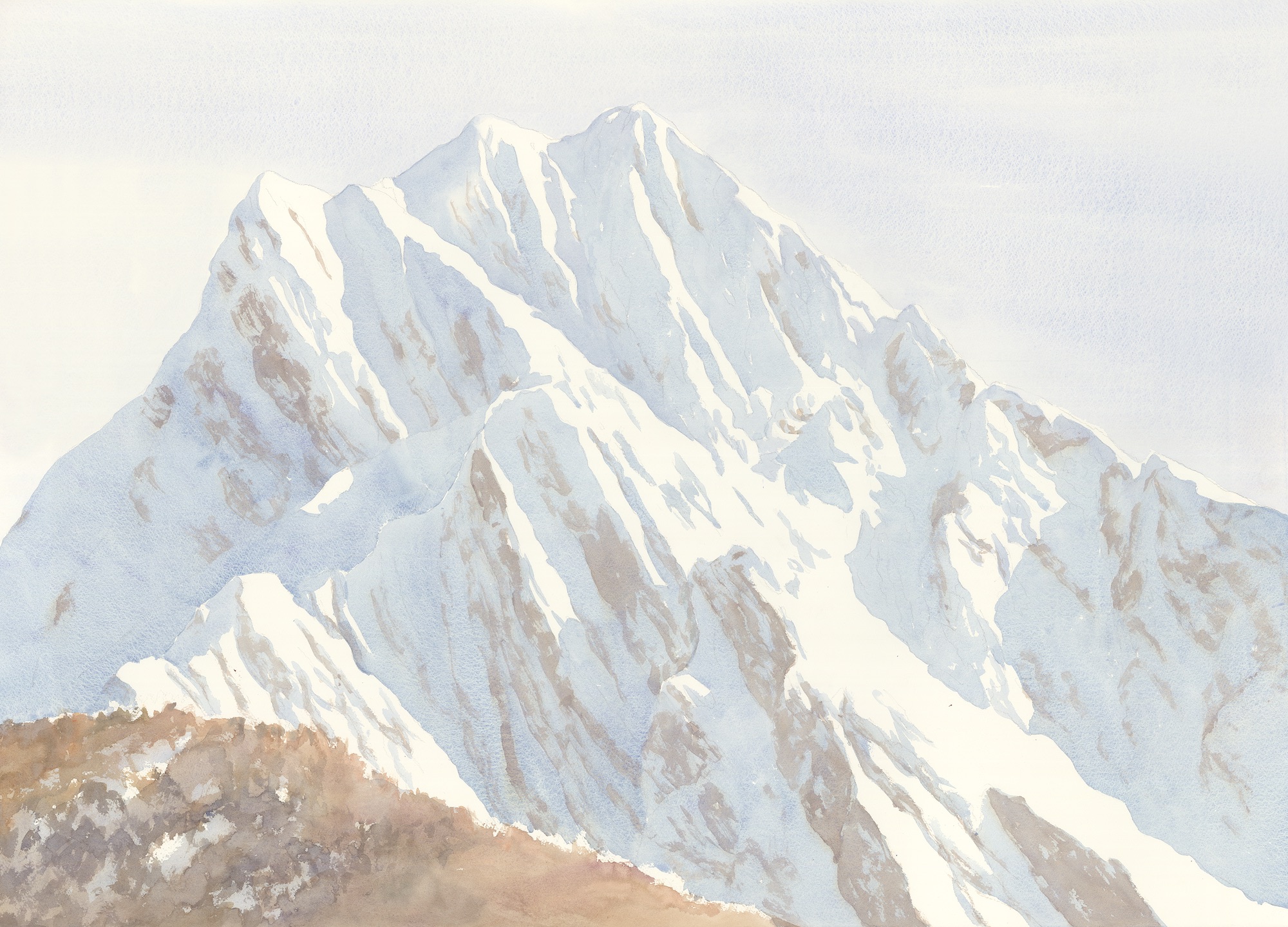
There was a girl standing in the distance. The breeze of the mountains flew beneath her luxurious hair. She was alone, but sometimes being alone makes you think deep thoughts. She wondered about her life, and day dreamed of what she would be doing next. She lived in a small town, but wanted to do something extraordinary. Ever since she was a little girl, she knew she wanted to follow along her mother’s aspirations. She looked around the fields, and saw the little polka dotted fawn nursing milk from her mama. She thought back to her childhood. How her own mama was always there for her, and took her to fields on a beautiful day like this. She would watch her mother in the distance paint away. Her artwork was astonishing. After her mother passed away, she couldn’t control her emotions anymore. Instead, she painted until her thoughts were complete. She grew as an artist, but never measured up to where she wanted to be. She is 35 now, and is still sitting alone in the fields looking at those mountains her momma took her too.
An idea popped into her mind and she pulls out her yellow paint brush. She gracefully picks up the palette, and sits there for hours until the sun goes down. She drew the most beautiful photo, and headed home in the small countryside. As she is walking home with her paint visible to see, a man stops her. “Excuse me, ma’am? Are you Syliva Fitzpatrick?” he questions. She answers yes, and they talk about the artwork in her hand. He explained to her that he is a manager for a huge artist company and wants to sign her a deal. “There is an art exhibit down in New York City. I would love for your artwork to be displayed there.” Sylvia’s blue eyes brighten up with excitement. She immediately agrees, and almost runs home to her tiny house. As she opens the door, she throws the art work to the ground. Takes a glance at it, and starts all over again. The fact that a huge manager admired her work, makes her feel desperate for something bigger. Again. She dreams of being someone better, and successful. She is so close now.
She pulls out her computer, and books a flight to LaGuardia Airport in New York. She leaves in two days and needs to prepare as much artwork as possible between now and then. She sits at the little coffee table by her fireplace, and thinks back to her mother’s paintings. There was one in particular that she loved. It was of a girl who seemed lost. She had a sorrowful look. Little did I know, that was my mom as a child. In the distance, her mother (my grandma) was in the corner searching for her. Finally, after hours, they found each other again. It breaks me to pieces because I know I’ll never see my mom again. Anyway, Sylvia was inspired by that memory, and she paints away until she the sunrise glistens through the window. A few days later she walks in the Metropolitan Museum of Art. Everyone is dressed in gowns, and she just couldn’t believe what she was seeing. She finally made it big.
-Morgan Agolli
This response was created in conjunction with Tony Varallo’s Creative Writing class.
Being Able to See
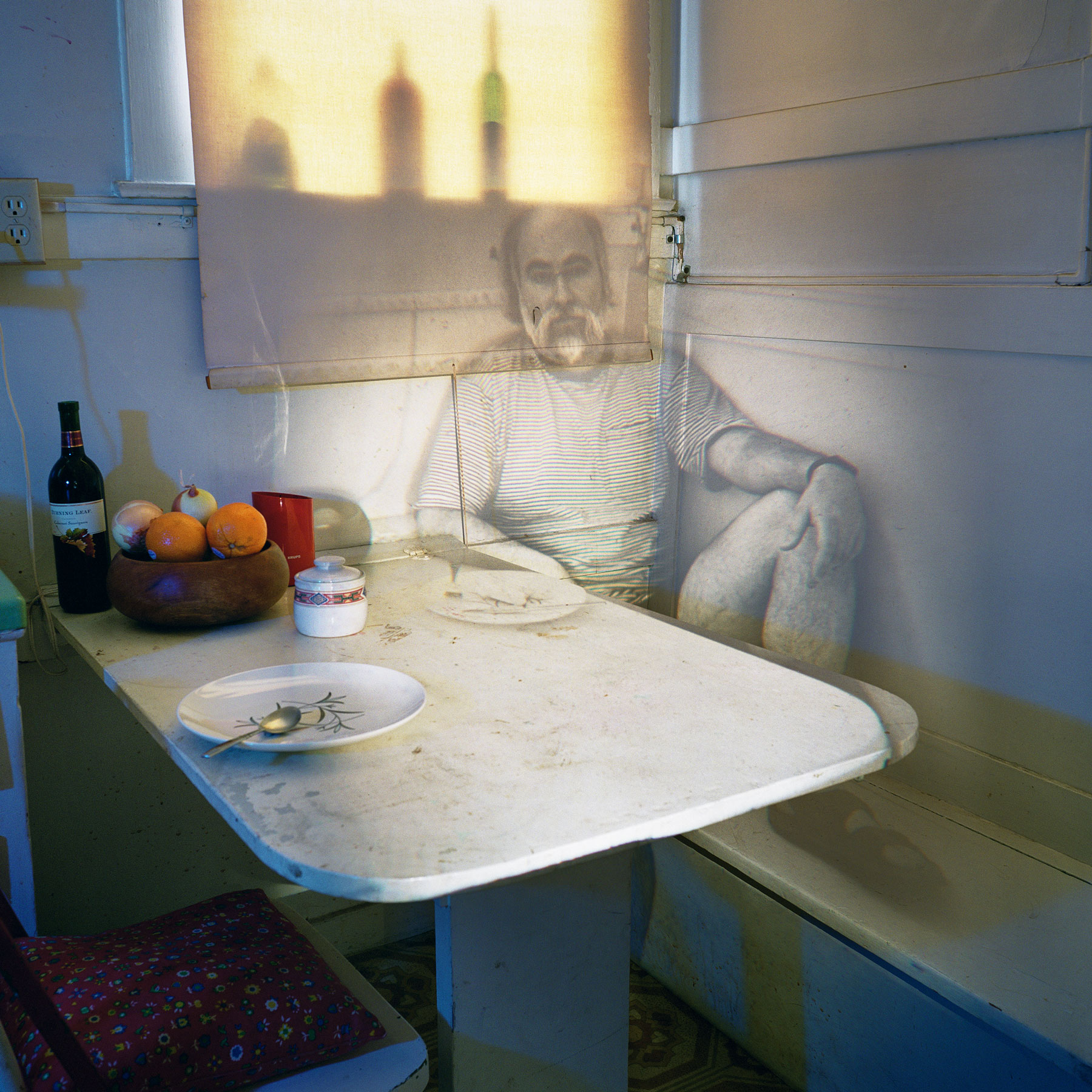
“Are you hungry, dear?” Granny asked. I knew she wasn’t talking to me. Her mind had started going soon after Grandpa had passed. She always talked to him. I wasn’t sure she even knew I was there.
I had tried to get her to move in with me, but as soon as I mentioned her leaving the apartment she had shared with Grandpa Bart for forty years, she had become agitated. She kept saying she couldn’t leave him all alone.
I stood in the doorway of the tiny kitchen and watched her set two plates on the stained white table. She still kept oranges for him in the wooden bowl which had gone out of style decades ago.
Granny hummed to herself as she started to prepare dinner on the tiny counter. The blind on the window was pulled down and I could see the silhouettes of wine bottles. One of them was a bottle from the night they were engaged.
She looked over at the bench and talked to Grandpa, “Bart, you will never guess what Maisy from down the hall did today!” She chattered on and my heart squeezed tight in my chest. He wasn’t there and it broke me a little that she thought he was.
When she had first showed signs of dementia and would talk to him, I would tell her that Grandpa had died. She would pat my hand, point to a chair, and say he was sitting right there. I finally had given up and played along with her fantasy.
I watched her smile as she kept up a conversation with her dead husband. She was the only one who heard him. I closed my eyes and wished I could hear him too. I missed his boisterous laugh. How even when I became an adult he would still lift me up and give me a bear hug every time I would visit. Then he would give me a big sloppy kiss on my cheek and say, “How’s my baby girl doing?”
I looked at the bench where he always sat at the table. My vision became blurry and for just a moment I saw him. I blinked. Then I blinked again. He was there.
He looked at me with a twinkle in his blue eyes. He wore a white and grey striped shirt, black shorts, and his favorite sandals. He leaned against the wall with an arm propped up on his leg, elbow on the table, “Bart! Get your elbow off the table,” I heard Granny yell at him. He laughed. I could hear him clear as day.
“Grandpa?” I asked in shock.
“So, you can see me now?” he queried. I nodded my head, looked over at Granny, and she looked back at me with a big smile on her face. She had not lost her mind.
-Gina Cromwell
This response was created in conjunction with Tony Varallo’s Creative Writing class.
Untitled
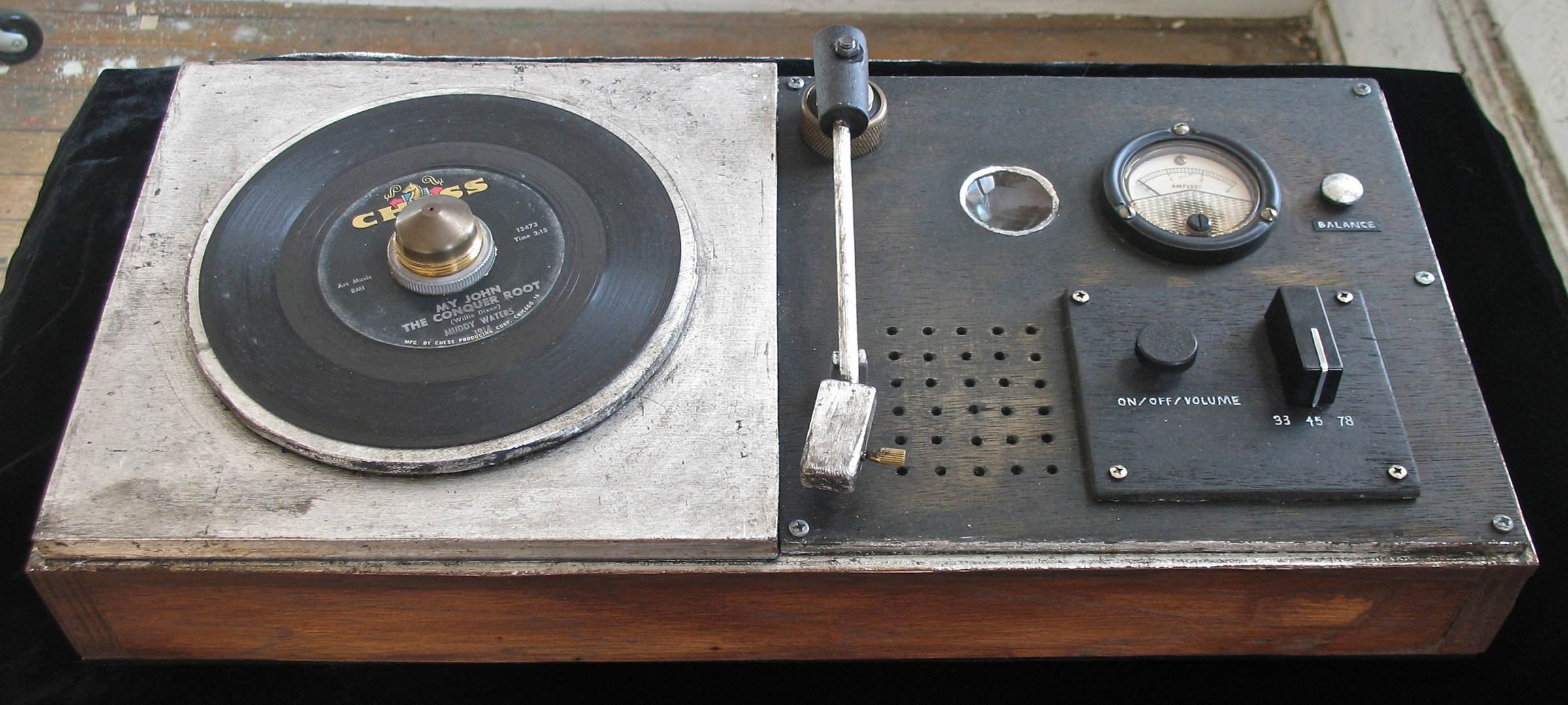
Almost there, he was almost there.
Will pulled down a few more boxes, gently placing them on the red and brown striped carpet. He looked up at the top shelf in the closet. The item he was digging for was now visible: his grandfather’s old vinyl record player.
***
“Are you serious?” he yelled when his grandmother told him of its existence.
“Your grandfather was always a big fan of playing with those machines back in the day, messing around with the knobs and sliders even if he didn’t know what he was doing with ‘em.”
His grandmother then sighed thoughtfully and pointed to a cabinet across from them in the kitchen.
“Open that up, there should be a record in there called My John The Conqueror somethin’. It’s the only one we have that still works. If you wanna play with it, the vinyl player’s upstairs inside my closet.”
Will beamed a smile and ran past his grandmother to the cabinet, nearly slipping on the marble tiled floors as he looked for the record. Finding it in the very back of the dusty brown cabinet, he smirked at his grandma and hugged her. “Thank you thank you thank you! This is gonna be so sick!”
He was so excited that when he ran up the stairs, he didn’t hear his grandmother yell at him to stop running in the house.
***
Will reached up and carefully grabbed the old machine. Dust covered its silver plating for vinyl discs, and mold covered its wood finish underneath. Grime and dirt covered the knobs and buttons on the right side of the device, and the needle that protruded from the middle looked like it had better days. But Will didn’t care, he was excited to play with something his grandfather had once used. He had never met his grandfather, and he hoped that this would connect the two of them for the first time.
Will grabbed the vinyl record he placed on top of his grandmother’s bed and pressed it down onto the most logical area on the device: the right side. Then, he grabbed the needle in the middle and spun it over to the right, softly pressing it down on the disc. He raised his eyebrows when the disc didn’t move and music didn’t play.
He examined the buttons on the left, which were surely the reason no sound was coming out of it. One of them read “ON/OFF/VOLUME”. He scratched his head, wondering why all three of those things were connected to one button. He glanced back at the door that led to his grandmother’s room, wondering if he should run downstairs to ask his grandma for help, but he decided against it when he heard his grandma’s shrill laugh at whatever she was watching downstairs. Alright, he’ll figure it out by himself.
He pushed the button and, viola! the disc turned very slowly at first, scraping against the bottom of the needle. Music softly began to emit from its speakers, a hefty piano’s soulful chords dancing with the melody of a trumpet. Will leaned forward, pushing his ears closer to the speaker to hear it a little better, only to be jump scared by a loud, deep voice. The voice sang with the main melodies, its words loud and clear over the music:
My pistol may snap, my mojo is frail
But I rub my root, my luck will never fail
When I rub my root, my John the conqueror root
Aww, you know there ain’t nothin’ she can do
Lord, I rub my John the conqueror root…
The song continued and Will lay his back on the floor, his arms stretched behind his back. His grandad didn’t have that bad taste in music, huh? The bouncy rhythm and vocals soon lead into an exciting trumpet/saxophone solo, which quickly became Will’s favorite part. He closed his eyes and let himself fall into the beat.
***
His grandmother, hearing the music from the stairway, had made her way up the stairs and stood at the door frame, her arms crossed, a smile on her face. In the corner of the room, she saw her long deceased husband sitting on the bed throwing a baseball up in one hand and catching it, bobbing his head to the horns and pianos that emitted from the vinyl player. A single tear developed in her eye, and fell onto the striped carpet. The music began to speed up, as Will began to mess with the RPM knobs. Her husband turned his head in her direction, laughing playfully at the sped-up music, bouncing the baseball back and forth between his hands. Her grandson, lying on the ground next to the vinyl player, laughed the exact same way.
-Josh Sanders
This response was created in conjunction with Tony Varallo’s Creative Writing class.
The Girl with Wings
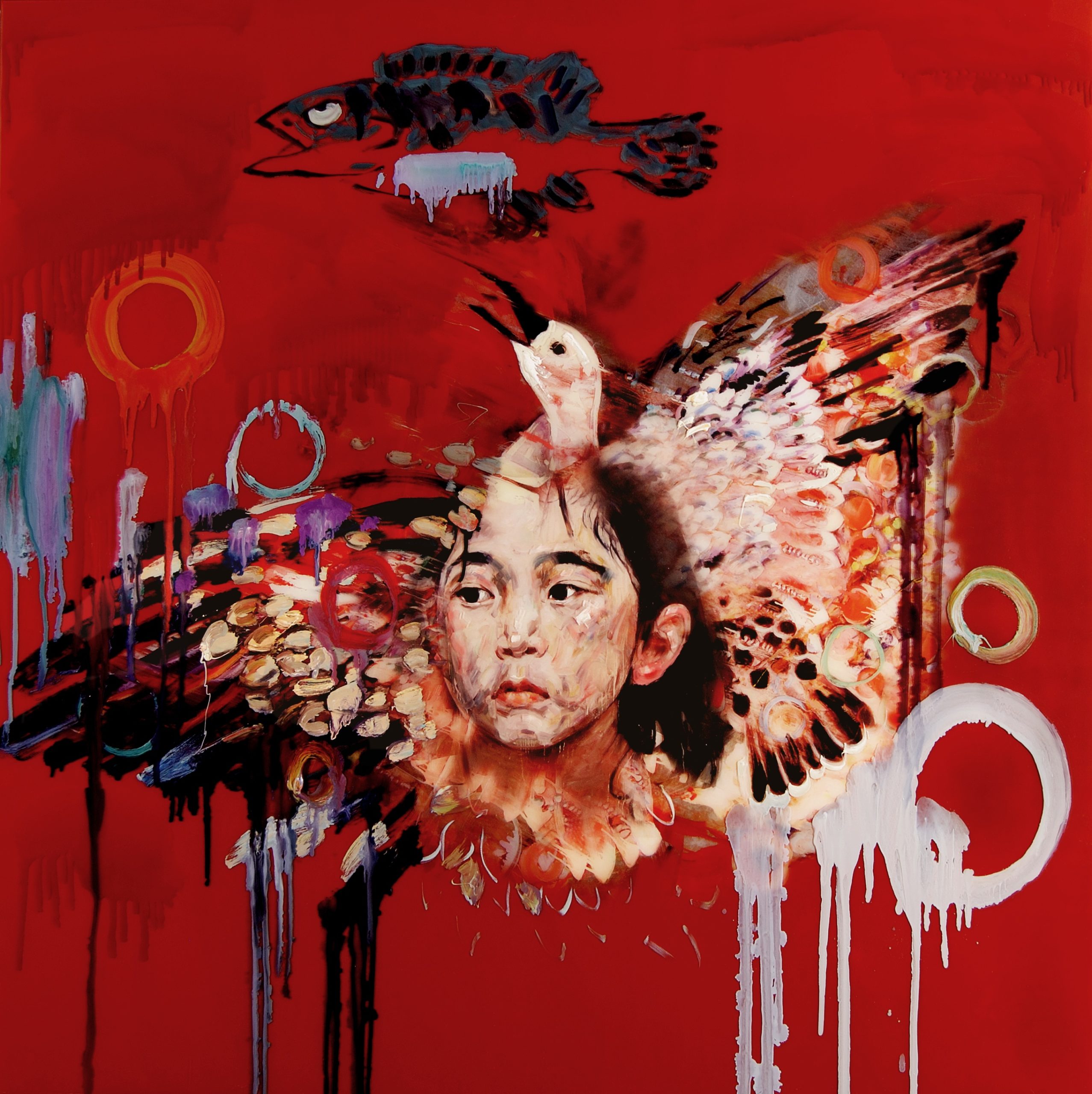
The little girl blinked. She had a habit of staring so hard that her eyes filled with tears and wobbled, suspending her vision in what she liked to think of as tiny oceans. Her mouth was wet and tasted of salt. She wiped her face with the back of her hand so hard it hurt and looked around as if she hadn’t been sitting in the same confetti-patterned leathery chair for the past hour, knees jutting out from cropped pink yoga pants which matched her favorite pink sneakers (once lit up in fantastic colors when she stepped but now shedding their soles). She’d always hated children’s hospitals. She knew Mommy would be angry to hear her think that, the word hate, and was glad her thoughts bounced against her skull and never left it. The scuffed linoleum floors reflected awful white light like the kind in school, and she wanted desperately to be there instead of here, where she felt at least a little normal and not like some specimen she had heard of at the bus stop, where the middle-schoolers once talked loudly about cutting open a frog in science class. She hated being the farthest bus stop in the district so she had to sit alone and tuck her knees up to her chest and press her head against the hard frosty window, so she had to get up so early the sky still thought it was nighttime, so the other poor kids could push her around as if they all didn’t eat the same discount meat from the same Asian market and didn’t have mothers that knew each other so well they had learned how to have lengthy conversations even though they were from different countries. She hated sitting up on the crinkly paper, slumped over with her hands between her knees so the doctor had to pry them away to get to her heart, which was apparently fragile and weak as a butterfly. She hated when the doctors leaned over and inspected her, when she had to peel her shirt off and put on some stiff papery thing and have someone put their cold statue-like hands on her to get hooked up to some nightmare-ish contraption and her only solace were the winged decals that decorated the walls of every room and hallway in the Pediatric Cardiology ward.
She looked up at her mother, who sat on the blue bench instead of her because, well, she hated it. Her mother had long silky black hair all the other mothers were jealous of, and now it swayed across her shoulders as she listened to the doctor. She nodded too much and spoke in bursts of crippled English. The little girl herself had never been to her mother’s country and could speak perfect English, but here in this tiny white room she felt mute, looking back and forth from the wrinkly doctor and her mother in content invisibility. She pretended she didn’t speak their language, only understanding little fragments of this strange English language in this strange foreign land where pastel butterflies danced across the walls.
If she looked hard enough, they twitched their wings. When she closed her eyes, they flew away, and if she believed hard enough, she was with them.
-Cora Schipa
This response was created in conjunction with Tony Varallo’s Creative Writing class.
Sam
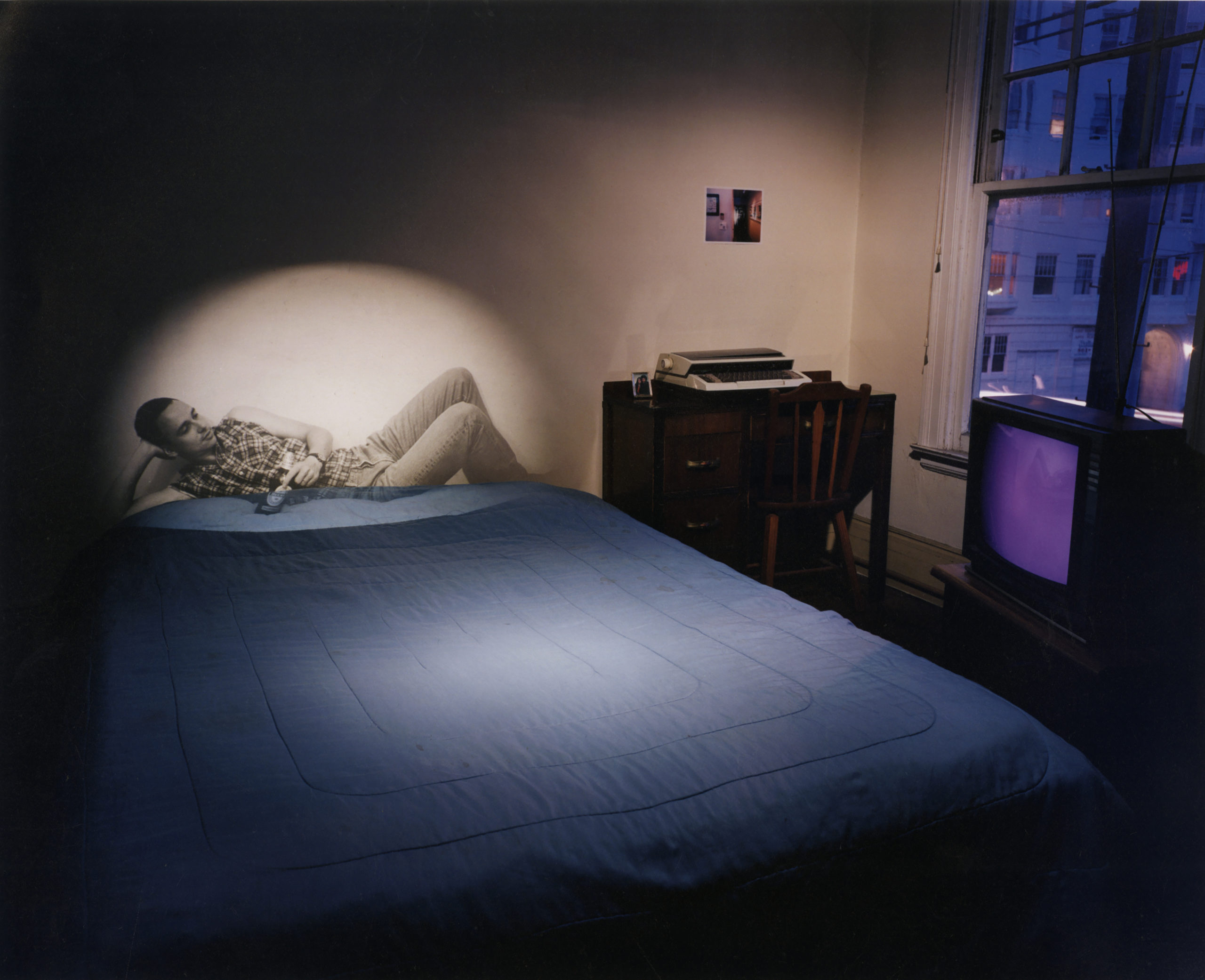
At the foot of our bed is the only place I allow myself to cry anymore. Nowhere else. I’ve gotten to a point in time where I am able to make it home, stagger through the wooden door that still screams in agony when I open it and stumble towards our bedroom. My bedroom, I remind myself. There is an indentation in the shape of me on the shag rug. It’s a place where I comfortably collapse every day, unloading the crushing weight of you that exists in every space. When you left, you created your own gravity to bear down upon me, added lead to my shoes and eyelids.
The worst thing that you left is a phantom, a shimmering image of yourself that seems so much more real through my tears because it blurs your edges that were already fuzzy. The only thing that illuminates you is a dingy light above our bed with a bulb that you never fixed. It flickers and so do you. Most days you’re draped across the top of my scratchy blue comforter, arm across the pillow that used to be yours, hands around a cold bottle of Modelo Especial. Sometimes I imagine I will get up from the edge of the bed from the spot where I have become your spectator and find a bottle missing from our fridge. From my fridge.
When I am brave and stupid enough I rise up from the crowd that consists only of me and the dirt in the carpet and climb onto your stage. I reach for your beer like I used to, but lovingly this time. I’m not trying to rip it away from you for once, but just trying to find some grasp on the cold condensation that somehow doesn’t wet the duvet. You don’t bat my hand away, though. You don’t throw slurs at me in your drunkenness or toss your body to the side to edge away from me. Instead my hand passes through the porcelain, honey brown ghost of a bottle and I feel only the chill of a blanket that can only reach that temperature by loss.
There is a static symphony from the TV that your ghost refuses to tear his eyes from and the sound covers my sobs. Now the space under your bottle is wet but I create the puddles. Around this time I go get my own Modelo to join you on the bed with, I always keep a full pack in the fridge for you, even though they killed you long ago. It feels right to do.
This time I don’t stumble into the room, I walk slowly as if I’m a ghost myself. You look over this time, bottle raised in a cheer before you down it. I watch your throat bob up and down. If it wasn’t for the way I can see right through you I would believe it was real. I could believe you were just my inebriated husband back on our bed, listening less to the TV and focusing more attention on the woman out the window, her silhouette undressing to reveal a figure I never had and never will. Somehow even as a ghost, you still don’t seem to think I notice. I still do, and I still say nothing because that is the only way you will stay here with me.
Five drinks later I’m wasted, and I sprawl across the bed now, opening myself up to you. Move! My mind screams at you. My body is too sluggish to try to grab your shoulders, shake them until you respond. I only watch as I remember what it felt like to have your lifeless skin under my nails, digging into your back as I shout at you hopelessly to wake up. My eyes, now under a heavy Modelo glaze, look away from that horrific scene and up to our ceiling. Up to my ceiling. The air from the fan burns my eyes, but I continue to watch the blades rotate. They count time. Count your minutes. You’ll be gone soon, I recall, so I force my eyes back to where you lay against a headboard we never purchased.
“Sam!” I scream, loud enough to worry the woman in the window. I swear I see her look up. My hand slaps you across your face but it does nothing but loll your head to the side, eyes still open in a forever gaze, staring right through me, just like they did when you were alive. Are alive. I force my heavy limbs to reach over to you, reaching for nothing now, but rolling my body so I lay inside you. It feels cold here. Wet from our beers.
Five beers in, I know the last one sits in the fridge but I tell myself it’s in your hand.
“Please” I whisper this time, the static from your TV the only sound keeping me company. The woman’s curtains close on the gruesome scene she watches from her window. I don’t blame her.
If I drink enough, I convince myself again, I will wake up next to you.
-Reese Walker
This response was created in conjunction with Tony Varallo’s Creative Writing class.
Precipice
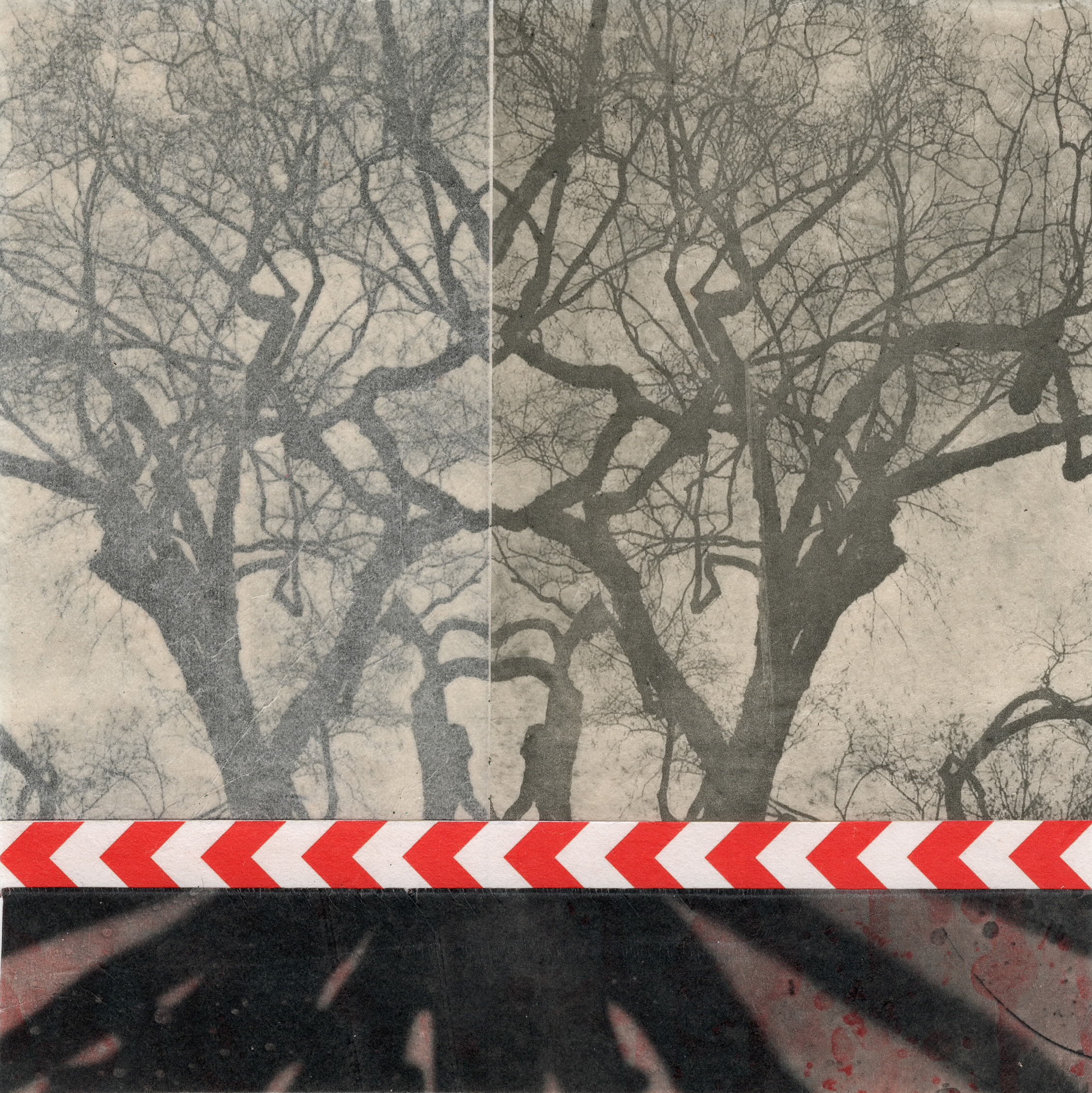
The things about nightmares, is they’re supposed to be scary. Drowning, running away from some nondescript monster, screaming but no one cane hear you. They’re supposed to seize you by the heart and shake you awake by rattling your ribcage.
Lorna’s nightmares aren’t scary. She guesses they could just be dreams then, but she’s hesitant to call them that. She knows she should be scared, standing on the edge of the world, balancing on her toes, with a sky like water and a ground like the canopy of trees. The wind blows so hard at her back she’s sure any moment she’ll fall. But she’s not scared.
Her father smiles and calls it wanderlust, when she tells them about the dreams in the morning. Says she just has itchy feet and a need for adventure. Her mother frowns, calls it “call to the void” and gets up to do the dishes without another word.
Lorna always wakes up before she falls, but she’s sure she falls. The wind gets stronger, and she balances on the edge of the floating sidewalk as if it were a normal sidewalk, stuck to the ground and safe to risk a skinned knee at worst. She wants to know, she wants to know so bad what it would be like to fall, to jump, to let the wind sweep her up and toss her over the side into the trees below.
Her mother tells her to be careful with dreams like that. They seep into reality and plant things in your mind, they convince you everything is a dream; tell you it’s okay to jump. She reassures her mother, pats her hand and tells her that she would never, that it’s just a pretty dream.
It’s a Tuesday afternoon the first time she gets the feeling while awake. There’s a bridge in town along a walking trail that crosses over a river. It’s winter, snow sticks to the ground and the edges of the water are iced over. Even if the fall didn’t kill her, the cold certainly would. She runs home that day.
Lorna understands why they’re scary now, balancing on the edge of the universe, with a sky like rippling water and a ground hidden by a canopy of trees. She can call them nightmares now. She doesn’t want to fall; she has a strange feeling that she knows what at the bottom, hidden by the pretty leaves of the trees. It’s not soft; they won’t catch her and cradle her in the branches. They’ll move away from her body and watch as she hits the ground. She knows she’ll be cold and something inside her tells her she would never wake up.
She takes to not sleeping, to following in her mother’s footsteps of too much coffee and not enough rest. The two are closer now. Her mother tells her stories of stairs that lead to the sky and wrought iron gates at the top, as if the emptiness on the other side were something to covet and protect. The father worries, he doesn’t know what to do, but all he wants is to help. He prods them with tea to try and coax them to sleep and lays blankets over them when they crash on the couch after too many sleepless nights. He does his best, and the two women appreciate him.
“What happens if we fall?”
“I don’t know, baby, but let’s leave that to mystery, okay?”
-Kacie Errington
This response was created in conjunction with Tony Varallo’s Creative Writing class.
The Fourth of July
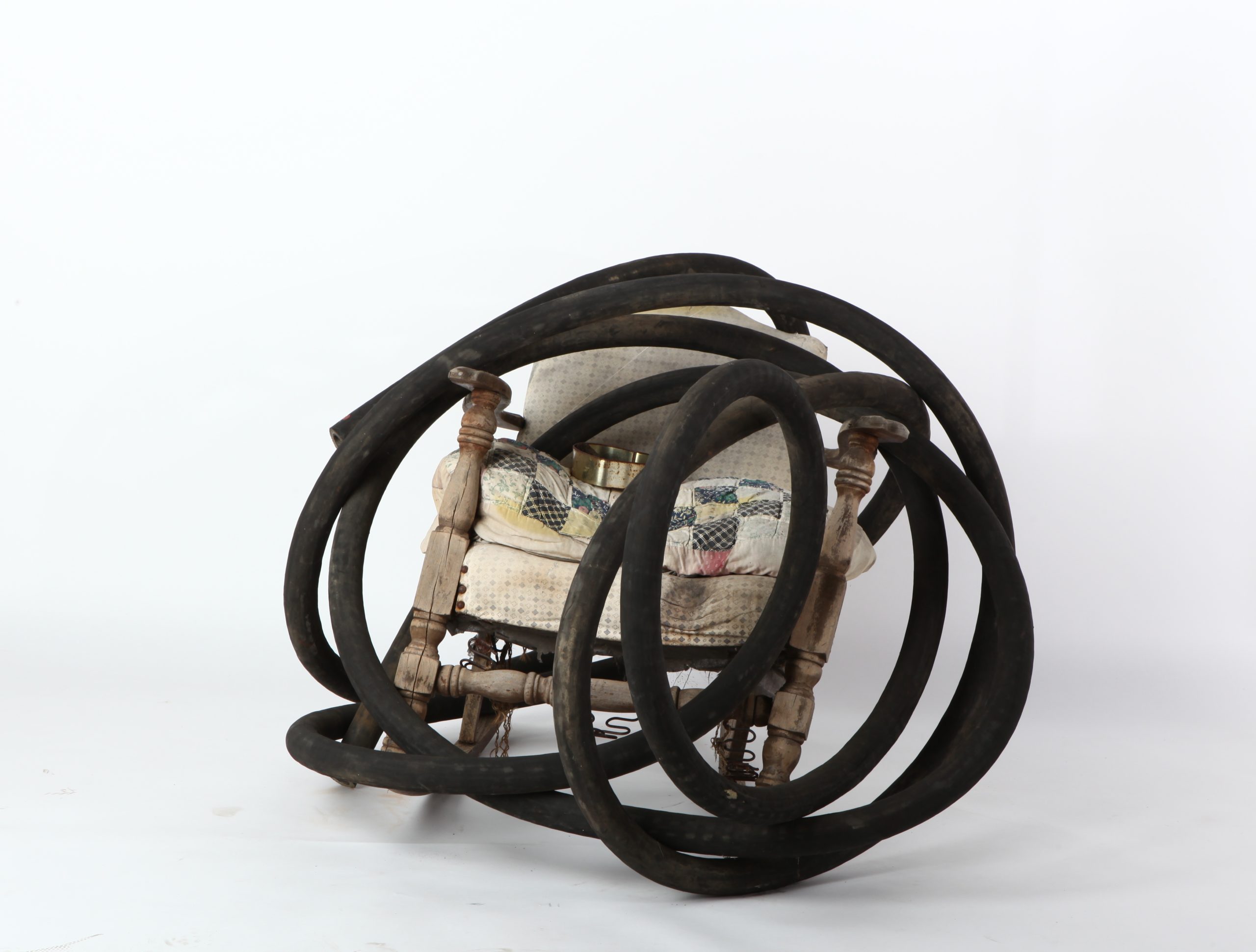
“Cami’s coming over,” Arthur said as he eased his body into his rocking chair, causing the wooden floor beneath him to creak. The chair was littered with patches of stains, and its back appeared textured from the few clumps of stuffing that remained inside. Atop the chair, to cushion his descent, was a quilted pillow—the kind that you could never buy but that all older people seemed to have somewhere in their living room. As Arthur settled in, he reached for a plate of banana pudding that rested on the end table beside him, avoiding eye contact with the rest of his family that sat stiffly on a couch across from him.
“Oh?” Emily replied. “How’s she doing?” She shoved a bite of her own pudding into her mouth and glared over at Arthur.
Arthur focused his eyes on the plate as the pace of his rocking picked up. “Ya know, I really don’t know. She hasn’t been here in a while.” From the looks of it, no one other than Arthur had been here in a while. The ground was covered in a thin coat of dirt and dog hair, though there was no dog to be found. And sprawled across side tables and splintered wooden walls were countless photographs, blurred from years of collected dust. Each one told the story of a different part of his life—his time as the prized son of a distinguished young mother, his friendship with a Japanese soldier, his late-in-life love story with his widowed neighbor, his time growing old with a best friend turned brother, and perhaps more important than them all, his venture into adoptive fatherhood.
The first fireworks of the night boomed in the background of the old lake house, causing all heads to turn in their direction.
“Looks like it’s starting,” he said, his eyebrows rising in excitement. “Emily, would you, uh…” His voice slowly trailed off as he gestured for her to move his chair closer to the open windows.
Emily obliged and helped him settle back in his chair while her children pushed their own chairs to the window, anxious for the firework show to continue. The room flickered with tints of red and purple as they sounded, one after another. The children bounced out of their seats, claiming “That’s the biggest one yet!” each time, which caused Arthur’s chest to bounce quietly with laughter.
As the show went on, it became increasingly clear that Cami wasn’t coming, but no one dared to say anything.
Emily placed her hand on top of Arthur’s shoulder. She could feel the outline of his frail bones poking into her palm.
“I do miss her, you know,” Emily whispered with shaky breath.
He placed his own fragile hand atop hers and patted it a couple of times. Each time, their rings made a faint clinking noise.
“I know,” he replied. “Me, too.”
-Madison Gepper
This response was created in conjunction with Tony Varallo’s Creative Writing class.
The Gray Man

“He slivers into my consciousness without pretense. He exists in my present reality in a kaleidoscope of greys; he is neither a figment of my imagination nor a corporal being. He simply is” she explained, grasping at anything, at everything, at nothing; but the more she talked, the more aware she became of how she came across.
There was an unquiet silence; “I see” he nodded slowly. He marked a note in his leather-bound book and closed it. He rested the book and his hand over his crossed knee, leaning towards her. “This man” he pressed “do you know who he is?”
“Well, he is the Grey Man” she paused. Leaning back into the cold leather armchair wringing her hands together, “I know how I sound, but I am not crazy. He is not Banquo floating above a banquet hall. He is no ghost of an unspeakable past. He just is-”
“But, who is he” he pressed again. His body leaning further and further towards, as if being in closer proximity to her would give him access to her entire mine. She’s holding something back; she must be he thought to himself, as his question lingered in the air like a half deflated balloon hovering shyly above the ground.
Slowly she looked up from her nervous hands and the man watched as her face evaporated out of the present moment. Physically, her body was present; but she was gone, hypnotized in some space in between realities where she rested— unreadable.
“Who is he” the man repeated. He figured if he repeated himself again she would re-emerge. It was not uncommon for his patients to find themselves frozen in their minds during session. He did not know she was caught in a different place entirely for his own reality existed only in diagnosis, in chemical imbalances. His life had dealt only with what could be categorized and named; schizophrenia, PTSD, borderline personality disorder. Anything outside of tangible reality was an indication, he believed, of a deeper psychological problem. “Who is he” he demanded again, but her face did not change.
Her chest moved up and down steadily. Had he not been with in her office, she could’ve been any blank face on the subway. But she was not a stranger, she was until recently one of his least interesting clients. But something had changed in the last few sessions, she was increasingly agitated, but could not explain why.
The Grey Man, who is he? he wondered. What rocks have I left unturned?
He looked up and her face had relaxed back into its normal state. She smiled slightly, “I’ve been feeling a bit tense this week” she began as if the session was just starting, and it was for her. She had returned to conceivable reality, the only reality that existed for the man across the room. A reality without the ambiguous form of the Grey Man, who sat now, in that other dimension, at dusty unadorned kitchen table waiting for her to return.
-Celeste Alimonti
This response was created in conjunction with Tony Varallo’s Creative Writing class.
Hoodoo Magic

I was looking in the attic making space and thinking about what to sell for the garage sale. I had already taken care of the clothes that didn’t fit me anymore, one shirt I tried nearly suffocated me. After that unfortunate event, I had a look through some of the Home Depot boxes, filed to the brim with old electric junk that didn’t work. I sorted through old cellphones, old hard drives, anything you’d find in a closet hoarder’s home, but something caught my eye. It was an old record player. Well, maybe old was a bit much considering how it looked. I didn’t see one of those comical looking horn things that could be attached to it that made the song louder. I didn’t even know what to call that, not like I needed to care. I had a look at the device checking it’s condition, only to realize I had no idea how to work a record player. So I brought it downstairs so my Mom could have a look.
“Hey Momma!” I called out to her making my way carefully down the ladder’s steps, “I found an old record player! Should I take it to the garage?”
“What was that baby!? I can’t hear you!” she called back from the other room.
“Hang on, I’ll be right there,” I yelled, rolling my eyes. I walked over to her and saw her typing away at her keyboard. She saw me struggling with the device and offered a hand helping me set the piece on a nearby table. She had A sudden stroke of realization and a warm smile slowly surfaced.
“Oh! I remember this old thing. My Papa used to play my favorite song on this.” she blissfully recollected.
“I didn’t know we even had vinyl records,” I said slightly intrigued. Mom gave me a small single chuckle.
“Well, we don’t have vinyl records. We have a single record. Would you do me a favor Desmond and go to my safe there’s something I want to show you.” I nodded and walked over to the safe located in her bedroom. I whispered to myself as I was unlocking it. One, Nine, Sixty-four. I looked in the back to see a small cardboard slip. Without a second thought I picked it up and brought it over to her. She took the old dark disk from the sleeve, the disk had “My John the Conquerer Root,” as its title.
“Rumor has it that The Muddy Waters band had cast a hoodoo spell on these disks, Not like they’d need it considering how good their songs were.” Mom remarked. She placed the needle of the player on the disk as it played the song of a man in constant struggle. As I listened, I saw tears well up in her eyes as nostalgia came pouring in. We’ll worry about the sale tomorrow…
-Christian Harris
This response was created in conjunction with Tony Varallo’s Creative Writing class.
Mountain Watchers
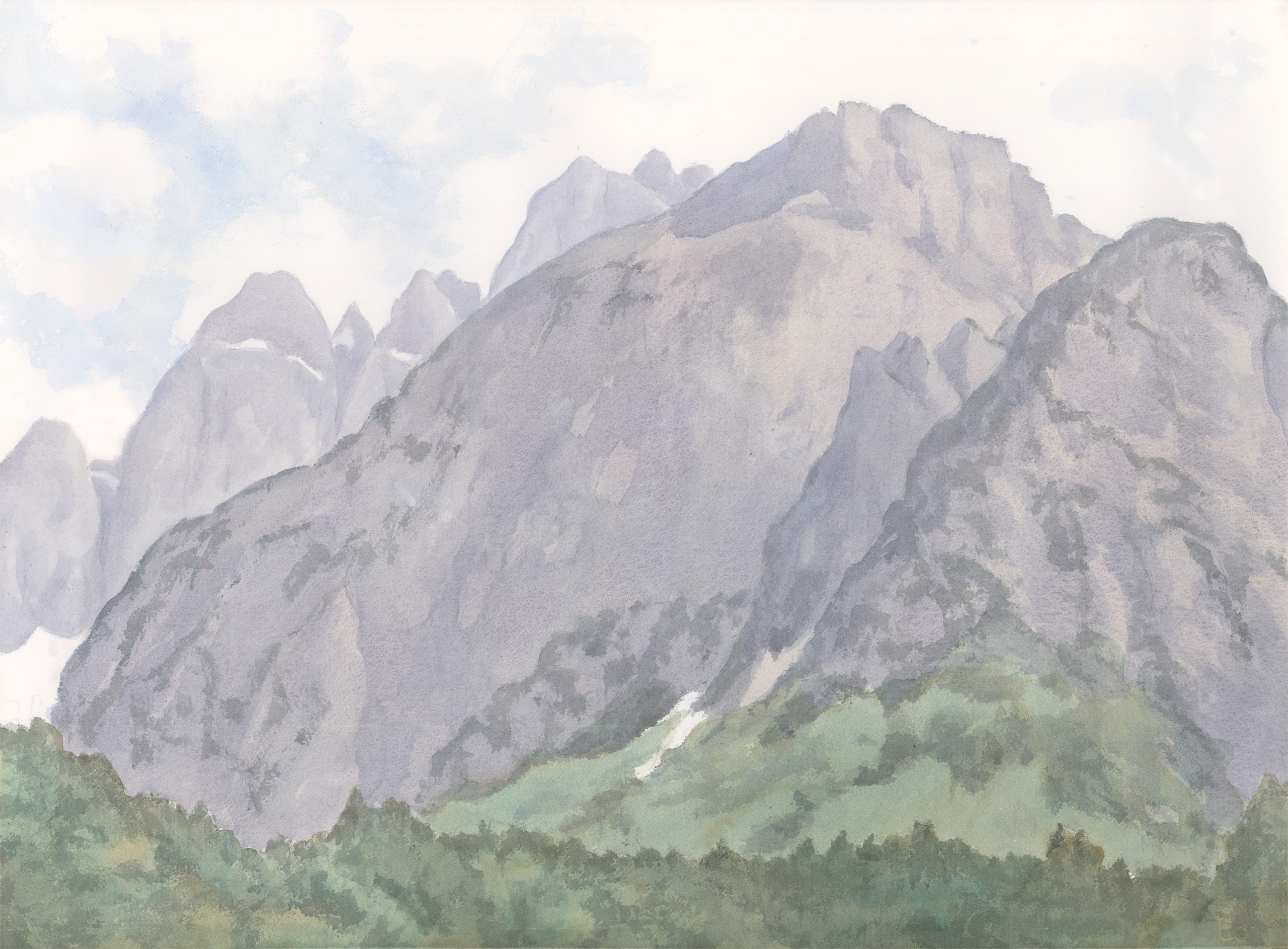
I fear I am the last of the Mountain Watchers, Argus of the Earth. I was claimed by my mountain 20 winters ago. Lord Nabois ranges 18,000 ft, swaddled in evergreens, balding grey at his peak. His last keepers may Mother Earth let them rest well, Farrah of the Earth and Cyd of the Wind were only able to give me my basic training before joining with Lord Nabois. I’m afraid I will have no one to take my place as caretaker, it seems the forest claims no more lost children these days. For myself once I came to the forest, I was destined to never leave its side.
As a watcher, I must ascend to Nabois’ peak every dawn and dusk. Though you have never seen a mountain move this is when they are the most active. Lord Nabois greets me with an earth shake. To the passersby of hikers and campers, Lord Nabois is an exquisite beauty that was formed in prime years. Lord Nabois is one of the youngest mountains of Mother Earth. Born right before the rise of humanity, he has grown with us all. Seeing all our failures, all our success, and passing silent judgement to us via the wind.
Tonight, is the ritual of the snake and hare. A brief anointment of Lord Nabois with the poison of a copperhead to mix with his dirt. The feet of the hare must be dressed in wildflowers and buried at the four corners of Nabois’ base. With this, Nabois has had his defense reinvigorated and his interconnectedness reignited. Using my hands to shovel, I create the last hole for the hare foot wrapped in yarrow. I throw in the foot and fill in the hole completing the ritual. Lord Nabois rumbles.
My eye catches the sky. The moon has found her place suspend in darkness. A half crescent asking to be filled. I sing my song for her. A hymn of love. Relaxing, I take a seat in the earth. The crumbling of leaves, dry from their descent, comfort me. My eyes drift, my eyelids heavy from the day. As I let the darkness consume me, a cry rings from the left of me. One that can only belong to a child. I ask Nabois if this is to be a child to of his. The earth quakes as an answer.
-Indigo Walker
This response was created in conjunction with Tony Varallo’s Creative Writing class.
Ghost Story

The changing of the times, the evolution of humanity, and the world is a graphic and eccentric scene. We are told to maintain in the one place that we know. Don’t ask too many questions, do your work- keep going on the straight and narrow path displayed in front of you. The scenery may change, but the memories live on. Burn it down in glorious flames of the fire goddess, build it back up in stone and wood, the way our forefathers did before us. But, no matter what you do or do not- the ghosts of those who passed will remain there- the same, as mourning, lost souls, in a world that they no longer understand or belong in. Yet, they remain. Ashes to ashes, dust to dust, energy will always remain the same. An infinite timeline, running through the cosmos, searing through the depths of knowledge and logic as we know it.
The young, the old, the ones unborn- never given a chance or opportunity to live the life that was breathed into them from their mother’s womb. Yet, they are blessed in a way- they escaped the horrible cruelty of the world that would’ve destroyed their innocence. Life and death are alluring partners, in a constant infinite dance, un-yielding to the other- never backing down. They create the perfect balance between what is known and what is unknown, what is given power, and what is ultimately taken away.
In this image, of a ghostly aura, comfortably and calmly sitting at a table that is physically there, while his spirit remains- shows the properties of the differences of life and death- of change and continuum, of birth and reincarnation. On how things go on when there is nothing left- for the cosmos do not stop for the tiny particles of matter planted on different atmospheres and worlds. Yet, the ghost remains- calmly looking out- in his once home- a place now owned by another, changed, morphed, a whole new creation- that he must sit aside and watches as the world and life that he knew changes around him. He does this with a peaceful, gentle smile- a twinkle in his eye- he is not sad, nor afraid. He simply… is. Like the churning of energy concentrated in creating stars, matter, and anti-matter, traveling through the space of time. Time in itself is just a theory- but the same thing could be said of life- what is life? What is the definition of what is and isn’t? What warrants and permits such actions and claims?
Colorless, awaiting in the corner, surrounded by the ever-moving and changing life around him, around us all. The real, the truth, the fake, the unknown and known. A constant riveting change affecting all of us, yet truly affecting nothing at all. This is the way it is meant to be. This is the way the cosmos created us.
Relax, take a deep breath, inhale the rich oxygen that allows us to continue. Don’t look away- seek, and find more if you can. Do not be afraid, for being afraid is as ridiculous as being afraid of the unknown as it is ridiculous to be afraid of the known. We are all ghosts- with our own stories.
-Sara Hart
This response was created in conjunction with Tony Varallo’s Creative Writing class.
Musical Memories

“The last of it is in here,” Selena said as she led up me up the flight of stairs.
I knew my dad’s house was old, but the creak that each step let out made me realize it was ancient. I didn’t have the money to fix it up or pay off my dad’s mortgage, which meant the house was being claimed by the bank. He had only been gone for a few days and it seemed cruel to disperse of everything in his life so quickly, but we didn’t have much of a choice. My dad’s live-in nurse had cleaned out the downstairs before I could even get a flight into town, and it all seemed to be moving too fast.
I looked around the attic that I hadn’t seen in a decade, and felt my heart squeeze at the small pile in the center of the room. Dad never was a hoarder. My face must have given me away, because Selena put a gentle hand on my shoulder.
“I’ll be just downstairs if you need me.”
I nodded in thanks and waited until I heard Selena finish her short stomp down the stairs before I approached my dad’s things. There’s wasn’t anything too special. Some old books, a few figurines, a pack of baseball cards…nothing that held real meaning. I felt my eyes begin to burn and I couldn’t stop the tears from falling. I wasn’t even here to say goodbye to him and now there was nothing left of him at all. Hell, I hadn’t even known my dad had passed away until eight hours after the fact. I was so caught up in my career and my stupid meetings that I didn’t have time to return any of the missed messages on my phone. I should’ve known better.
I wiped my tears just as something in the corner of the room caught my eye. I crawled toward it and blew a thick layer of dust off of the top. It was my dad’s old record player. Actually, turntable might be more accurate. It was a long rectangle with the record on the left and the controls on the right. The needle ran right down the middle and my fingers immediately itched to pick it up and let the music play. I plugged the chord into the wall, thankful that we hadn’t had the electricity turned off just yet. Maybe this could be my closure. Maybe my dad left this record there for a reason. Taking a deep breath, I turned the black knob to “on” and dropped the needle onto the disk. It took a minute, but sound eventually began to pour out.
My pistol may snap, my mojo is frail
But I rub my root, my luck will never fail
When I rub my root, my John the conquer root
It was “My John the Conquer Root,” by Muddy Waters. I hated that song. At least I pretended to as a kid. Not because there was anything wrong with the music itself. The lyrics were actually pretty inspirational. But whenever he played it, my dad would always dance around in that weird way that made you embarrassed of having parents at all. I always tried to play it cool, but I knew he caught me smiling on more than one occasion. Memories I hadn’t thought about in years came flooding back, and, despite everything, I couldn’t help but laugh. Dad was always good at making me do that.
-Rachel Foertsch
This response was created in conjunction with Tony Varallo’s Creative Writing class.
Hope Over Yonder
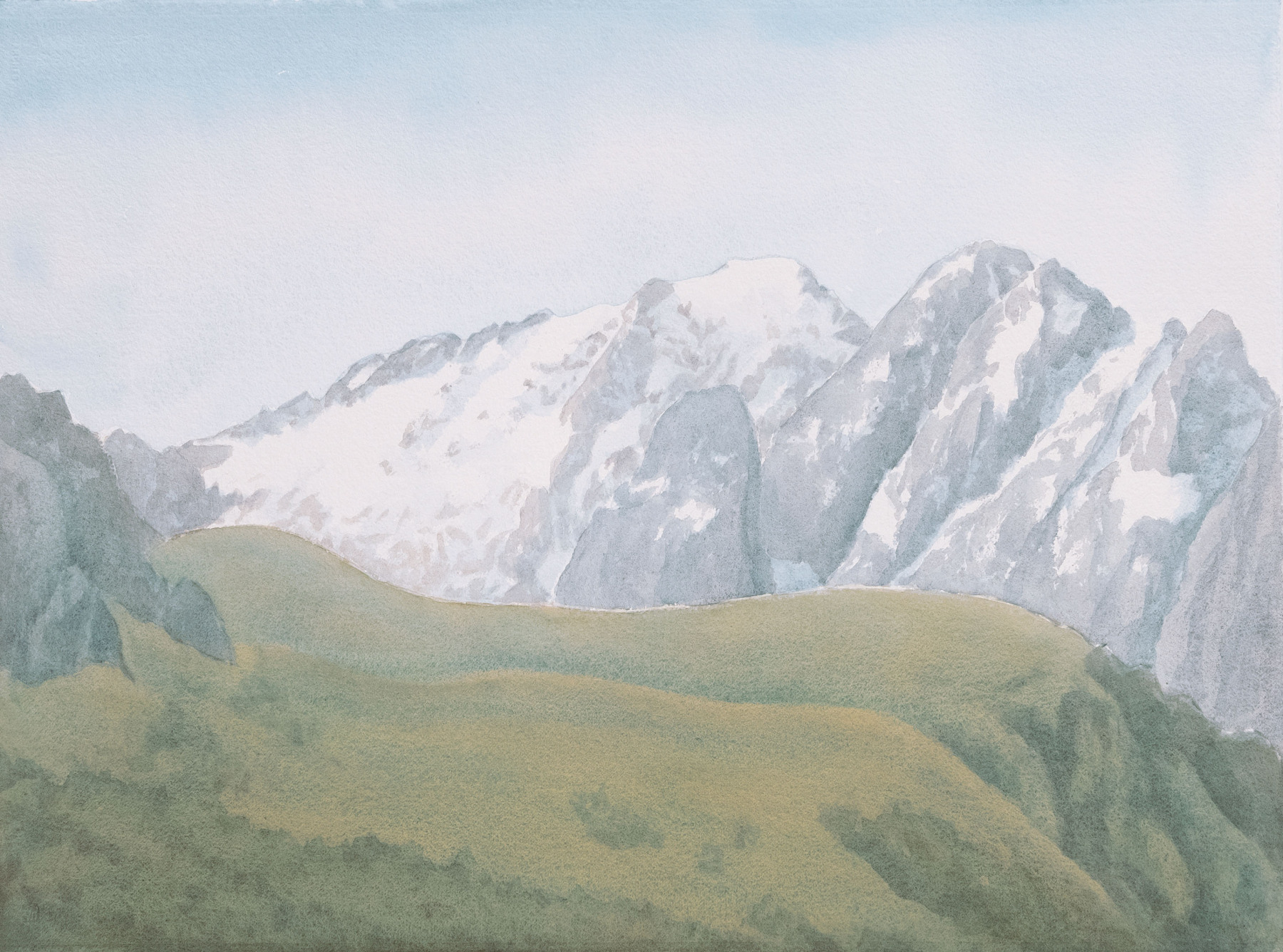
The little girl felt godstruck by the snowcapped peaks across the valley. From the vantage point atop her father’s mule she was able to see clear cross the grassy knolls and even past the winding valley that separated her from the glacier peaks that seemed to even challenge the sky for dominance. To her the mountain tops looked as if they had been doted upon by a most meticulous god who placed each patch of snow atop it with the touch of an immaculate artist. They also reminded her of her mother’s sweet breads which the two would always decorate together with confectioners’ sugar. The girl’s efforts always gave way to clumpy, unseemly looking sweet breads but her mother’s had that same immaculate quality as the peaks before her.
Cold, buffeting mountain breezes cut through the knolls and drove into the girl and her father. Both recoiled and the girl drew her father’s cow hide overcoat even closer against her. The overcoat seemed ten times her size and even though it smelled as unwashed as her father was she was still all too happy to be swallowed up by it. The girl also wore her mother’s brown scarf which likewise carried the far more pleasant scent of her mother. The girl nuzzled her cheek against the scarf and also discovered scents of rosemary, sage and yeast. Those remnant scents of all the baking the two did together had a calming effect on the girl. She took in the visage of the snowcapped mountains again and felt that it would all be so perfect were it not for the hunger gnawing away at her. She was use to the hunger though and knew from experience that complaining did nothing to fix it.
A question came to the girl’s mind.
“Why’s there snow up there but none here?”
The question barely registered in the father’s mind. He had been leading his daughter atop his mule for several days now. The two had set off with growling stomachs and all provisions they left with were given to the girl to help keep her vitality up. For the first two days the hunger had dug and scraped its claws all around the man’s insides. Now though, the hunger was less spastic. To the man it felt like something had taken ahold of his stomach with two large fistfuls and was pushing itself to see just how hard it could squeeze. This was considerably more painful but also easier to ignore strangely.
“Dad, why’s there snow up the-” the girl asked again before being interrupted by her father.
“Those mountains are much higher up and much colder.”
This puzzled the girl for two reasons. First, because surely she thought it had to be cold enough to snow where they were. The second reason was that she eyed the mountains as best she could and to her they seemed to be at the same level as she and her father were atop their path.
“That doesn’t make since. They don’t look much higher,” chimed the girl.
The father grunted. He gripped the mules reins tighter with his blood cracked hands and hobbled himself and the mule farther along. He wanted to reach his wife’s brother by sundown where he hoped there was a better home with more food waiting for her. The thought of giving up what he loved most in this world hurt more than the hunger and just as had happened every night on this trip after the girl had went to bed tears began to sink one by one down his face.
“Dad, that doesn’t make sense,” repeated the girl.
The father stopped the mule. He lifted his daughter off of it and embraced her.
“Well, sometimes things don’t make sense,” assured her father. “Sometimes things happen and you can’t even begin to wrap your head around why.
He smeared tears away from his face and continued, “When that happens it’s easy to get angry because none of what happened is going to feel fair.
Feeling himself beginning to choke up, the man paused and took a deep, slow inhale of chilled air. “I’m not sure what I’m trying to say with all this but I just want you to know that your mother and I love you with all our hearts, ok?” asked the father.
“Ok,” replied the girl, who was entirely unsure over her father’s sudden change in demeanor.
“Good,” said her father, “Good.”
He lifted the girl back onto the mule and took the reins in hand. The small party began to move forward with the father guiding them towards the village. They walked for several more hours in silence. They crested one last hill and as the uncle’s village came into view the sky began to darken. The girl looked up and saw tiny, harsh flakes of snow begin to fall from the sky.
-Kyle Hollandsworth
This response was created in conjunction with Tony Varallo’s Creative Writing class.
Bottles of Red

Another bottle is emptied, another red stained cork is displayed in the woven basket that sits beside the vintage cellar. 730 bottles to be exact.
She doesn’t know that I can still see her dancing with him in the kitchen. The lights dimmed low, forming shadows on the wall of her gracefully dipping backwards in the arms of another man. She’s as agile as ever. More petite than I can remember. I haven’t had my arms around her waist in a while.
The worst part of it all, is that there is nothing that I can do. I wish I could scream until my voice gave out and shake my wife firmly, then drop down to the floor, on my knees begging to be seen. But I can’t. So my impotence takes over, and the numbness eases the pain. And once again, I wallow in despair.
There are many forms of grievance. Some act hysterical. Some crawl beneath walls of denial. Some develop vicious cycles of self destruction through pain killers and gin. And some are lucky. Some are like my wife, they just move on.
So I sit there in silence. Unable to be seen or heard by anyone. I sit there and watch my wife fall in love, my children get old, another bottle of red be finished. I watch time pass by before my very eyes, with not a thing to do but mournfully observe.
It’s interesting how time is merely nothing more than an idea. A social construct developed to conceptualize the length of a period. The length of a party. The length of a nap. The length of a life. And yet we assume time to be this viciously evil monster that is out to get us. An external force that we are constantly battling, as we race against the clock. But time has no enemy. It has no rhyme or reason or preference. Time does not decide who’s love should be eternal and who’s heart will be broken. It does not arbitrate your level of expertise in your job and it most certainly does not determine the worth of one’s life. So why do we give time this much power? Why not just count days in bottles of red? 730 to be exact. One a day, 52 a week, 365 a year. And if I can’t escape time or reverse it’s story, then it’s as useful as a finished Cabernet. So for that I am like the bottle, empty and desolate, a thing of the past.
-Kristin Gallagher
This response was created in conjunction with Tony Varallo’s Creative Writing class.
Dis/placements Response: Fahamu Pecou's grav·i·ty
Fahamu Pecou, an Atlanta based artist who focuses on the Black male in America, speaks to the notion of home through his grav·i·ty series (2013-2014). Pecou encourages the viewer to reflect upon fashion as an art form and how it connects with Black American culture. Additionally, with the artistic use of dress and style, one can express their character, culture, and history. In other words, dress can represent a piece of home.
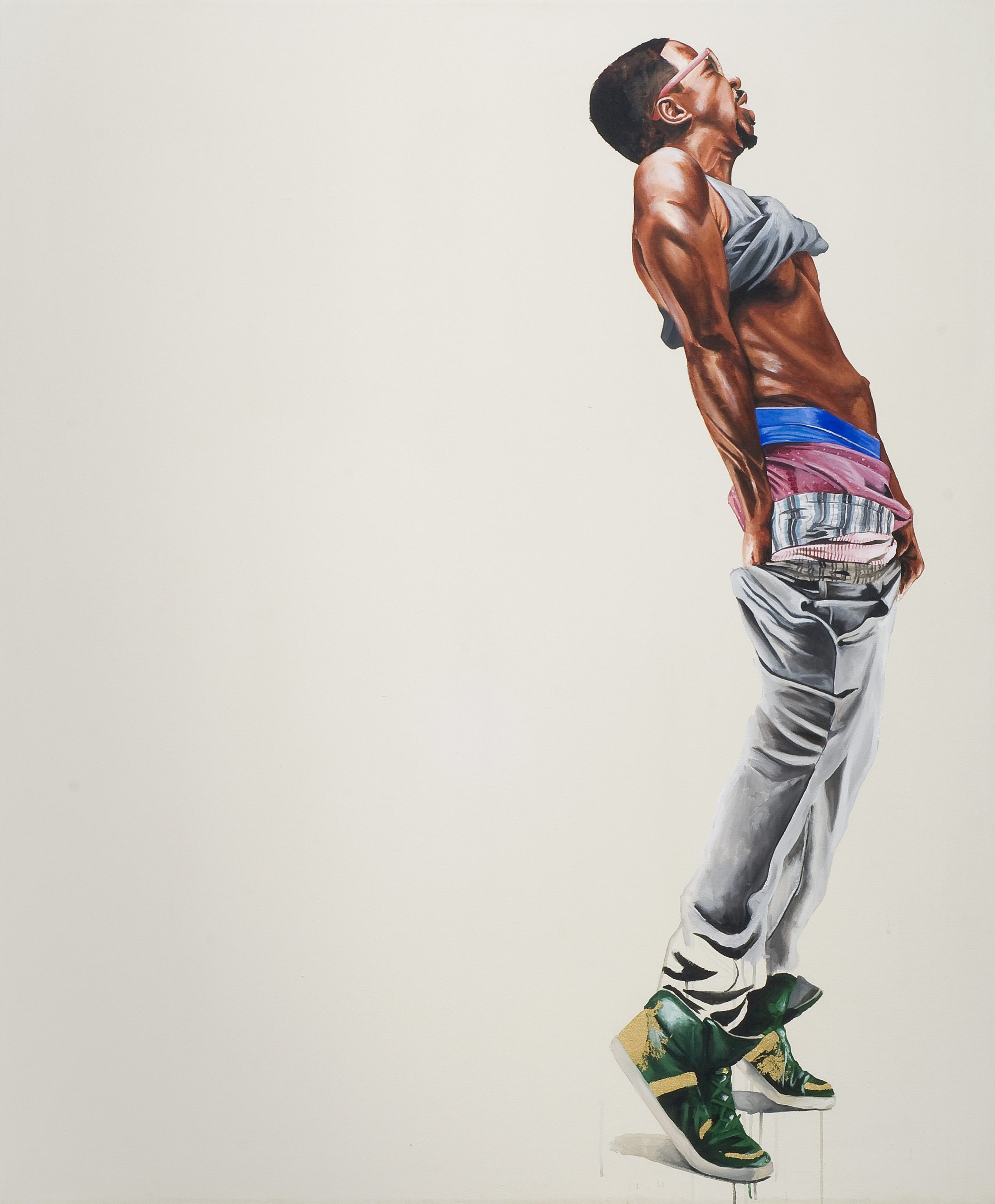
Dr. Fahamu Pecou. Phoenix, 2014. From the grav•i•ty series Acrylic on canvas, 70.5 x 54” Image courtesy of the artist From the collection of the Museum of Contemporary Art of Georgia.
In the grav·i·ty series, Pecou furthers this idea by drawing the observer in to understand and respect the style choice depicted in these works. The figure’s untied sneakers, accompanied by baggy jeans that reveal layered undergarments, encourages the viewer to reflect on this distinct style. Through these pieces, Pecou successfully draws the viewer in to question how culture and character are intertwined with clothes.
-by Allston Allison, Halsey Institute intern
Dis/placements Response: The Work of Hung Liu
Birds, women, symbols of celebration, symbols of Chinese communism and at its core an uncertainty involving one’s self. Hung Liu’s work defies time with clashes of China’s rapid modernisation and desperate push against the past. Depictions of traditional Chinese art and culture are juxtaposed with bright slashes of red – a symbol of celebration in China and yet a harsh reminder of the communist rule and the bloodshed during the Civil War that displaced Liu.
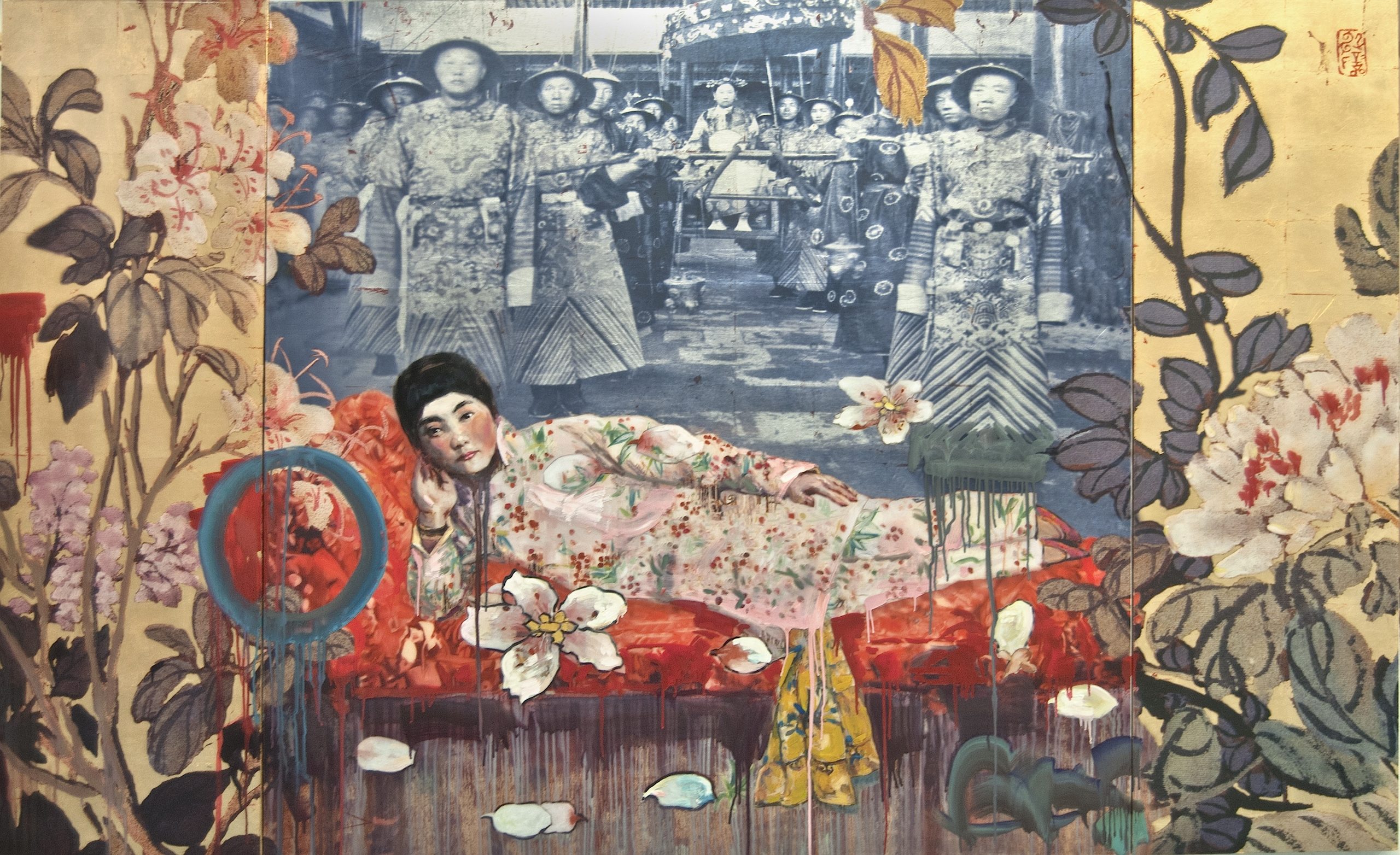
Hung Liu, Imperial Garden, 2014. Cast resin and mixed media on box. Triptych, overall: 60 x 97″. Image courtesy the artist and Trillium Graphics, Brisbane, CA.
Liu captures her feelings of separation with clusters of circles, a Chinese representation of the life cycle. While close, these circles scarcely touch and only once overlap complementing the isolated women they surround. The women depicted appear alike but not truly a part of their environment, within and yet distant. With some portraits superimposed on birds, Liu grapples with ideas of detachment and ultimately the freedom it brings. This notion of untethering is further illustrated in the contrasting colours that spotlight the individuals themselves but also constraints placed on them as if every movement could be scrutinised.
As a Eurasian woman, Liu’s works resonate with me. The ‘model minority myth’ that echos throughout the difficult and often overlooked history of Chinese Americans demonstrate that assimilation is perhaps more costly than living on the fringes.
As Liu’s work shows, perhaps home isn’t a place, perhaps it’s knowing who you are.
-by Marian Williams, Halsey Institute intern
Dis/placements Response | Tanja Softić's "Night Blooms"
Wrote the poet John Ashbery, “The room I entered was a dream of this room. / Surely all those feet on the sofa were mine.” It is this uncanny merging of past and present, this sense of déjà vu, that lends Tanja Softić’s Night Blooms series its unique power. In Softić’s work, present and future grow out of the past: remnants of previous eras are visible everywhere, memory mixes with present experience, and the motion of time is not linear, but a series of superimpositions. Should we dig through the new growth of any present, or any budding future, we will find a past beneath it: a past, for Softić, that contains the memory of a lost homeland.
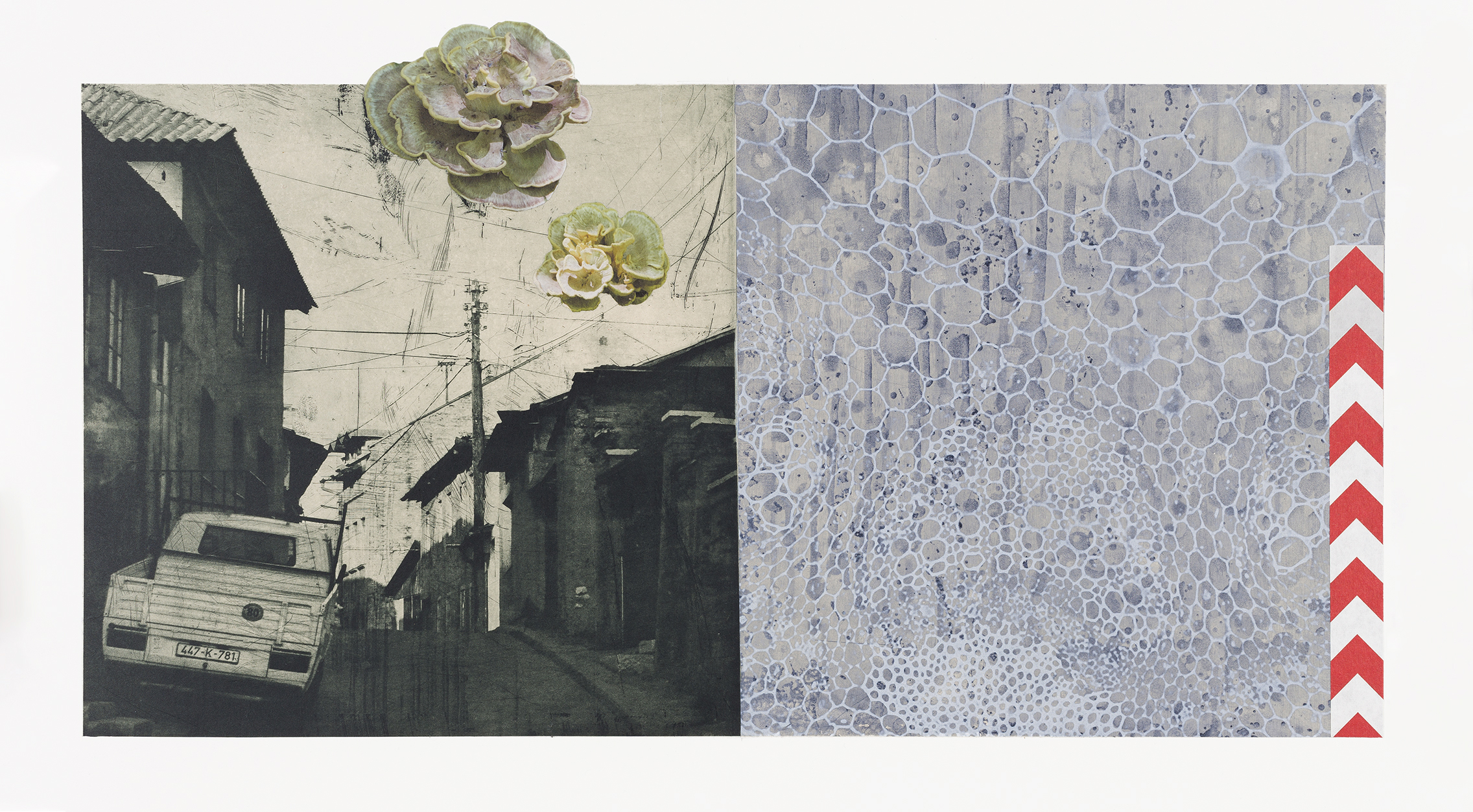
Tanja Softić, Night Blooms: Streets, 2019. Photogravure, aquatint, chine-collé, digital print. 12 x 24″. Image courtesy the artist
I have only known one home—Charleston—a city that seems, to me, like a paradigm of Softić’s exploration into how our present often grows out of difficult pasts. With the legacy of slavery at the city’s very foundation, Charleston’s present and future must be taken in the context of their painful past. By exploring her concept of home in Night Blooms, Softić sheds light on my own home, on the responsibility of recognizing and responding to painful histories, on the thin and shifting boundaries between our pasts and presents, between our memories and futures, between the earth and what blooms from it.
-by Isabel Prioleau, Halsey Institute intern





